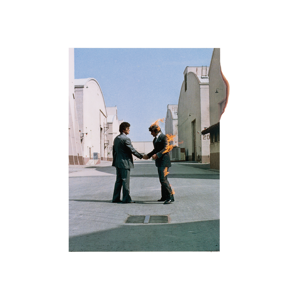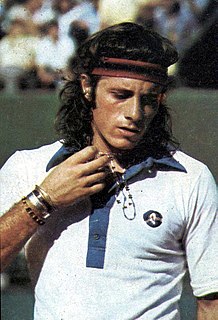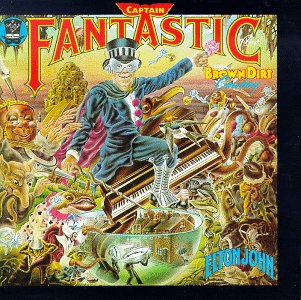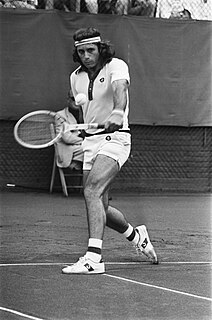Related Research Articles
The British North America Acts 1867–1975 are a series of Acts of Parliament at the core of the constitution of Canada. They were enacted by the Parliament of the United Kingdom and the Parliament of Canada. In Canada, some of the Acts were amended or repealed by the Constitution Act, 1982. The rest were renamed, in Canada, the Constitution Acts; in the United Kingdom, those Acts that were passed by the British Parliament remain under their original names. The term "British North America" (BNA) refers to the British colonies in North America.

"Bohemian Rhapsody" is a song by the British rock band Queen. It was written by Freddie Mercury for the band's 1975 album A Night at the Opera. The song is a six-minute suite, notable for its lack of a refraining chorus and consisting of several sections: an intro, a ballad segment, an operatic passage, a hard rock part and a reflective coda. "Bohemian Rhapsody" is one of the few songs to emerge from the 1970s progressive rock movement to achieve widespread commercial success and appeal to a mainstream audience.

Wish You Were Here is the ninth studio album by the English rock band Pink Floyd, released on 12 September 1975 through Harvest Records and Columbia Records, their first release for the latter. Based on material Pink Floyd composed while performing in Europe, Wish You Were Here was recorded over numerous sessions throughout 1975 at Abbey Road Studios in London.

Christine Marie Evert, known as Chris Evert Lloyd from 1979 to 1987, is an American former world No. 1 tennis player. She won 18 Grand Slam singles championships and three doubles titles. She was the year-end world no. 1 singles player in 1974, 1975, 1976, 1977, 1978, 1980, and 1981. Overall, Evert won 157 singles titles and 32 doubles titles.

Guillermo Vilas, also known as Willy Vilas, is an Argentine former professional tennis player, No. 1 of the Grand Prix seasons in 1974, 1975 and 1977, who won four Grand Slam tournaments, one year-end Masters, nine Grand Prix Super Series titles and 62 total ATP titles. World Tennis, Agence France-Presse and Livre d'or du tennis 1977, among other rankings and publications, rated him as world No. 1 in 1977. In the ATP computer rankings, he peaked at No. 2 in April 1975, a position that he held for a total of 83 weeks. He was inducted into the International Tennis Hall of Fame in 1991, two years after his first retirement.

Captain Fantastic and the Brown Dirt Cowboy is the ninth studio album by Elton John. The album is an autobiographical account of the early musical careers of Elton John and his long-term lyricist Bernie Taupin. It was released in May 1975 by MCA in America and DJM in the UK and was an instant commercial success.

Greatest Hits is the eleventh official album release for Elton John, and the first compilation. Released in November 1974, it spans the years 1970 to 1974, compiling ten of John's singles, with one track variation for releases in North America and for Europe and Australia. It topped the album chart in both the United States and the United Kingdom, staying at number one for ten consecutive weeks in the former nation and eleven weeks in the latter. It was the best-selling album of 1975 in the United States, and is his second best-selling album to date, being his first to have received an RIAA diamond certification for US sales of more than 10 million copies – as of April 2016 the album has been certified for 17 million units in the US. It remains John's best-selling album in the U.S. and one of the best-selling albums of all time, with 24 million copies sold worldwide. However, although all of its songs are available as downloads, the album is currently out of print, having been superseded by four other greatest hits releases over the years; The Very Best of Elton John in 1990, Greatest Hits 1970–2002 in 2002, Rocket Man: The Definitive Hits in 2007 and Diamonds in 2017.

"Lady Marmalade" is a song written by Bob Crewe and Kenny Nolan. The song is famous for its sexually suggestive French chorus of "Voulez-vous coucher avec moi?", which translates into English as "Do you want to sleep with me?". The song first became a popular hit when it was recorded in 1974 by the American R&B group Labelle and held the number-one spot on the Billboard Hot 100 chart for one week, and also topped the Canadian RPM national singles chart. In 2021, the Library of Congress selected Labelle's version for preservation in the National Recording Registry for being "culturally, historically, or artistically significant."

"Theme from Mahogany" is a song written by Michael Masser and Gerry Goffin. It was initially recorded by American singer Thelma Houston in 1973, and then by Diana Ross as the theme to the 1975 Motown/Paramount film Mahogany.

"Kung Fu Fighting" is a disco song by Jamaican vocalist Carl Douglas, written by Douglas and produced by British-Indian musician Biddu. It was released as a single in 1974 on the cusp of a chopsocky film craze and rose to the top of the British, Australian, Canadian, and American charts, in addition to reaching the top of the Soul Singles chart. It received a Gold certification from the RIAA in 1974 and popularized disco music. It eventually went on to sell eleven million records worldwide, making it one of the best-selling singles of all time. The song uses the quintessential Oriental riff, a short musical phrase that is used to signify Chinese culture.

"Brandy", later called "Mandy", is a song written by Scott English and Richard Kerr. It was originally recorded by English in 1971 and reached the top 20 of the UK Singles Chart.
Brian Edward Gottfried is a retired American tennis player who won 25 singles titles and 54 doubles titles during his professional career. He was the runner-up in singles at the 1977 French Open, won the 1975 and 1977 French Open Doubles as well as the 1976 Wimbledon Doubles. He achieved a career-high singles ranking on the ATP tour on June 19, 1977, when he became world No. 3, and a career-high doubles ranking on December 12, 1976, when he became No. 2.

"Get Down Tonight" is a song released in 1975 on the self-titled album by the disco group KC and the Sunshine Band. The song became widely successful, becoming the first of their five No. 1 hits on the Billboard Hot 100. It also reached the top of the Hot Soul Singles chart and was an international chart hit, reaching No. 1 in Canada and charting in Australia, Belgium, the Netherlands, and the UK.

"Heat Wave" is a 1963 song written by the Holland–Dozier–Holland songwriting team. It was first made popular by the Motown vocal group Martha and the Vandellas. Released as a 45 rpm single on July 9, 1963, on the Motown subsidiary Gordy label, it hit number one on the Billboard Hot R&B chart—where it stayed for four weeks—and peaking at number 4 on the Billboard Hot 100.

Sir Elton Hercules John is an English singer, songwriter, pianist and composer. Collaborating with lyricist Bernie Taupin since 1967 on more than 30 albums, John has sold over 300 million records, making him one of the best-selling music artists of all time. He has more than fifty Top 40 hits in the UK Singles Chart and US Billboard Hot 100, including seven number ones in the UK and nine in the US, as well as seven consecutive number-one albums in the US. His tribute single "Candle in the Wind 1997", rewritten in dedication to Diana, Princess of Wales, sold over 33 million copies worldwide and is the best-selling chart single of all time. According to Billboard in 2019, John is the top solo artist in US chart history, and the top Adult Contemporary artist of all time.

"Fly, Robin, Fly" is a song by German disco group Silver Convention from their debut studio album Save Me (1975). Sylvester Levay and Stephan Prager wrote the song, and the latter produced it. "Fly, Robin, Fly" was released as the third single from Save Me in September 1975, peaking at number one on the United States Billboard Hot 100. Thanks to the success of "Fly, Robin, Fly", Silver Convention became the first German act to have a number one song on the American music charts. The song received a Grammy Award for Best R&B Instrumental Performance in 1976.

The 1975 Commercial Union Assurance Grand Prix was a professional tennis circuit administered by the International Lawn Tennis Federation (ILTF) which served as a forerunner to the current Association of Tennis Professionals (ATP) World Tour and the Women's Tennis Association (WTA) Tour. The circuit consisted of the four modern Grand Slam tournaments and open tournaments recognised by the ILTF. The Commercial Union Assurance Masters, Davis Cup Final and Nations Cup are included in this calendar but did not count towards the Grand Prix.
References
- ↑ Archives on "InfoDisc" site Archived 2014-03-30 at the Wayback Machine